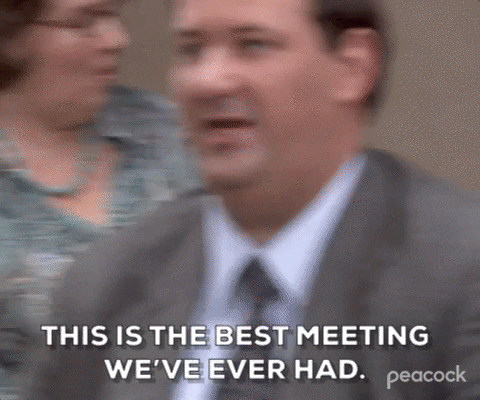by ELENA VERNA for Elena’s Growth Scoop
Five Mistakes to Avoid as an Advisor
To shortcut your way to a success.

APR 28, 2023
An advisor is an individual who offers guidance, recommendations, or expertise in a specific area to help others make informed decisions or achieve specific goals. Becoming an advisor in addition to the full-time role is a great way to:
- Gain exposure to more companies, industries, teams, and products
- Try-before-you-buy potential new opportunities
- Sharpen your strategic thinking
- Unlock career optionality
For me, advising was a gateway drug to solopreneurship. But I’ve made plenty of mistakes when managing my first clients – so here are five mistakes you should avoid!
Five Mistakes to Avoid as an Advisor
- Billing hourly
- Casting a wide net
- The kitchen sink problem
- Short stints
- Equity trap
Billing Hourly
In the eyes of the company, advisors are considered contractors and are often paid an hourly rate. This rate can vary greatly, ranging from $100 per hour to $4000 per hour. However, if the contract does not specify a set number of hours per month or week, it can wreck chaos in your schedule. For example, the company may require 8 hours of your time one week and none the following week. This quickly becomes impossible to manage and scale, whether you have a full-time role or are a solopreneur.
Instead, do hourly retainers.
Sell a predetermined number of hours per week or month, where unused hours are forfeited. This method helps you efficiently manage your schedule and ensures ample time for all your commitments. In addition, it eliminates the need to constantly track the hours spent on various tasks, which can be taxing and feel petty.
Tracking Async Work
As an advisor, your primary responsibility is to guide the internal team, with in-person meetings being the most efficient method for providing support. Hopefully, getting a reaction like this:

Nevertheless, accomplishing other asynchronous tasks, such as answering Slack/email messages and preparing for meetings, is crucial for effective coaching sessions. Keeping track of the time spent on these async tasks is not useful and does not hold value for clients, as it is not a reliable metric for them.
Instead, incorporate prep time into hourly meeting rate.
Establish retainers based on the live meeting hours, where clients receive the value.
My minimum advising commitment is 1 hour meeting hour a week, so every retainer I sign is a minimum of 4 meeting hours/month.
Casting a Wide Net
Casting a wide net of clients when building an advisory practice is not preferred for several reasons, including issues with context switching, the need for constantly increasing expertise, and the importance of word-of-mouth referrals.
- Context switching: Working with a diverse client base can lead to frequent context switching, as advisors must shift their focus and adapt their approach to each client’s needs. This can be mentally taxing and reduce overall efficiency, as it takes time and energy to refocus and get back into the flow of each client’s unique situation. It may feel something like this:
- Constantly increasing expertise: With a wide variety of clients, advisors must possess or constantly develop expertise across multiple domains. Focusing on a narrower client base allows advisors to deepen their expertise and better serve their clients.
- Word-of-mouth referrals: Building a strong reputation and generating word-of-mouth referrals are critical for the growth and success of an advisory practice. By carefully selecting clients who align with their specific expertise and target market, advisors can be more effective, making satisfied clients more likely to recommend their services to others.
Be more selective with clients and focus on a specific niche.
I discovered that I could not handle more than ~10 clients at a time because of context switching. But furthermore, I learned only to sign B2B PLG companies to limit context switching even further and accelerate my learning curve.
The Kitchen Sink Trap
Being a “kitchen sink” of questions while advising a client is a bad idea because it makes it difficult to demonstrate value and create a significant business impact. When advisors touch upon various topics without delving deeply into a specific initiative, they risk providing superficial guidance that lacks substance.

Focusing on a particular area allows advisors to offer targeted, meaningful solutions that contribute to the initiative’s success, ultimately showcasing their value to the client.
Focus on a single, strategic initiative that you can offer a guidance on.
In addition to advising a specific initiative, ensure:
- You are working with an internally accountable person responsible for the success of the initiative you will be advising
- The executive team is bought into the strategic importance of the initiative
- The initiative is resourced internally to make necessary progress and deliver an impact
Since I do growth advising, I ask my clients to focus on acquisition, activation, engagement, or monetization problems.
Short Stints
Signing short, 3-month engagements as an advisor is not ideal because it limits the opportunity to see initiatives through to their completion and maximize the impact of your guidance. Additionally, short engagements can hinder your learning cycles, as they restrict your ability to augment your knowledge with new insights gained from observing the outcomes of your advice.
Six month or longer (ideally a year) engagements allow advisors to provide more substantial and effective support while also fostering continuous learning and growth.
Equity Trap
Imagine paying the company $50,000 to exercise your advising options to keep hard-earned equity. Especially if you didn’t have any cash component to the compensation… Not all of us have that type of money lying around.

It is common for advisors to receive only company equity as compensation. If they are options, they may have a strike price you will have to pay to exercise your ownership rights. And unfortunately, it is possible to find oneself in a situation where you may owe a lot of money to keep your ‘compensation’.
When signing a contract, ask for one of the following clauses:
- Extended exercise window – 5 or 10 years. This allows you to wait until closer to the liquidation event and higher chance of recuperating your money. Do check the tax implications of this decision.
- Monthly cash compensation to cover exercise costs.
Afterword
Everyone should consider trying their hand at advising for several reasons:
- Personal growth: Advising others helps you hone your critical thinking, problem-solving, and communication skills.
- Sharing expertise: If you have valuable knowledge or experience in a particular area, advising offers an opportunity to share your expertise with others who can benefit from it.
- Building relationships: Advising connections can lead to long-lasting relationships, which can be personally fulfilling and professionally advantageous.
- Learning from others: As an advisor, you are exposed to different perspectives, ideas, and challenges, which can expand your own understanding and knowledge.
- Enhancing your reputation: Providing valuable advice and contributing to the success of others can help build your credibility and reputation within your field. This, in turn, can lead to new career opportunities.
Happy advising!
